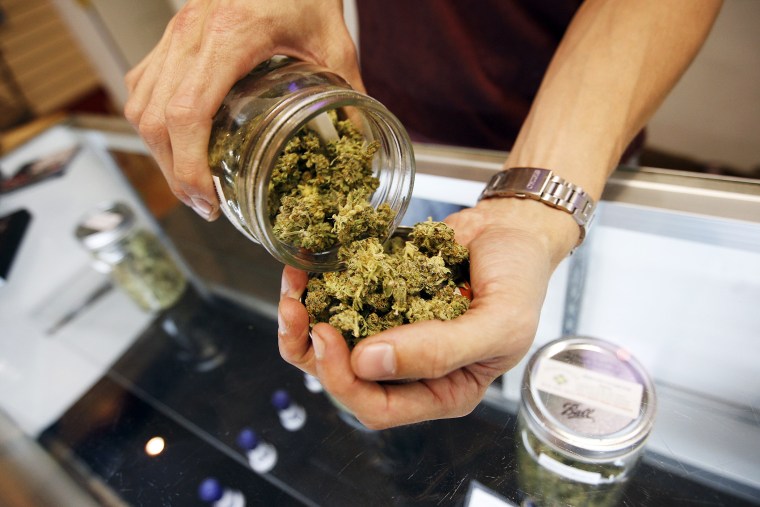For the first time ever, Congress is taking action to protect -- not condemn -- medical marijuana use.
Shortly after midnight Friday, the GOP-led House passed a measure that would prohibit the Drug Enforcement Agency from raiding medical marijuana activities in states where it is legal. It gained broad bipartisan support with 170 Democrats and 49 Republicans voting in favor of the bill, with a final 219-189 tally.
Republican Rep. Dana Rohrabacher of California attached the measure to a routine spending bill. It would block the Justice Department from using federal dollars to interfere with medical marijuana operations that are legal in almost half of states in the country.
"Some people are suffering, and if a doctor feels that he needs to prescribe something to alleviate that suffering, it is immoral for this government to get in the way," Rohrabacher said, raising his voice on the House floor Thursday night. "And that's what's happening."
The measure still faces several procedural hurdles. The Senate is expected to pass its own funding bill, meaning the amendment would have to survive the reconciliation process in a joint conference. And that’s even before it makes it to the president’s desk for his signature.
The groundbreaking vote mirrors a growing swell of support for marijuana across state legislatures and among the public. For the first time ever, a majority of Americans support legalizing marijuana. Minnesota just became the latest state to green-light medical use of pot, adding to the 21 other states and the District of Columbia that have similar laws on the books. Meanwhile Washington and Colorado are becoming a testing ground in shaping a market and regulation for recreational pot use while the drug remains illegal under federal law.
“Despite this overwhelming shift in public opinion, the federal government continues its hard line of oppression against medical marijuana,” Rohrabacher said on the House floor.
The feds have already taken small steps toward reconciling the competing state and federal laws. Easing back on the decades-long “war on drugs,” Attorney General Eric Holder said the DOJ would stand by the voter-backed initiatives in Washington and Colorado. Holder has also said the administration would be “glad to work with Congress” on whether to declassify marijuana from being considered on the same level as heroin and LSD, a movement that is slowly gaining steam.
“It’s becoming clearer and clearer that marijuana prohibition’s days are numbered,” Marijuana Policy Project director Dan Riffle said in a statement. “It’s nice to see more members of Congress standing up for their constituents instead of standing in the way of reform.”
